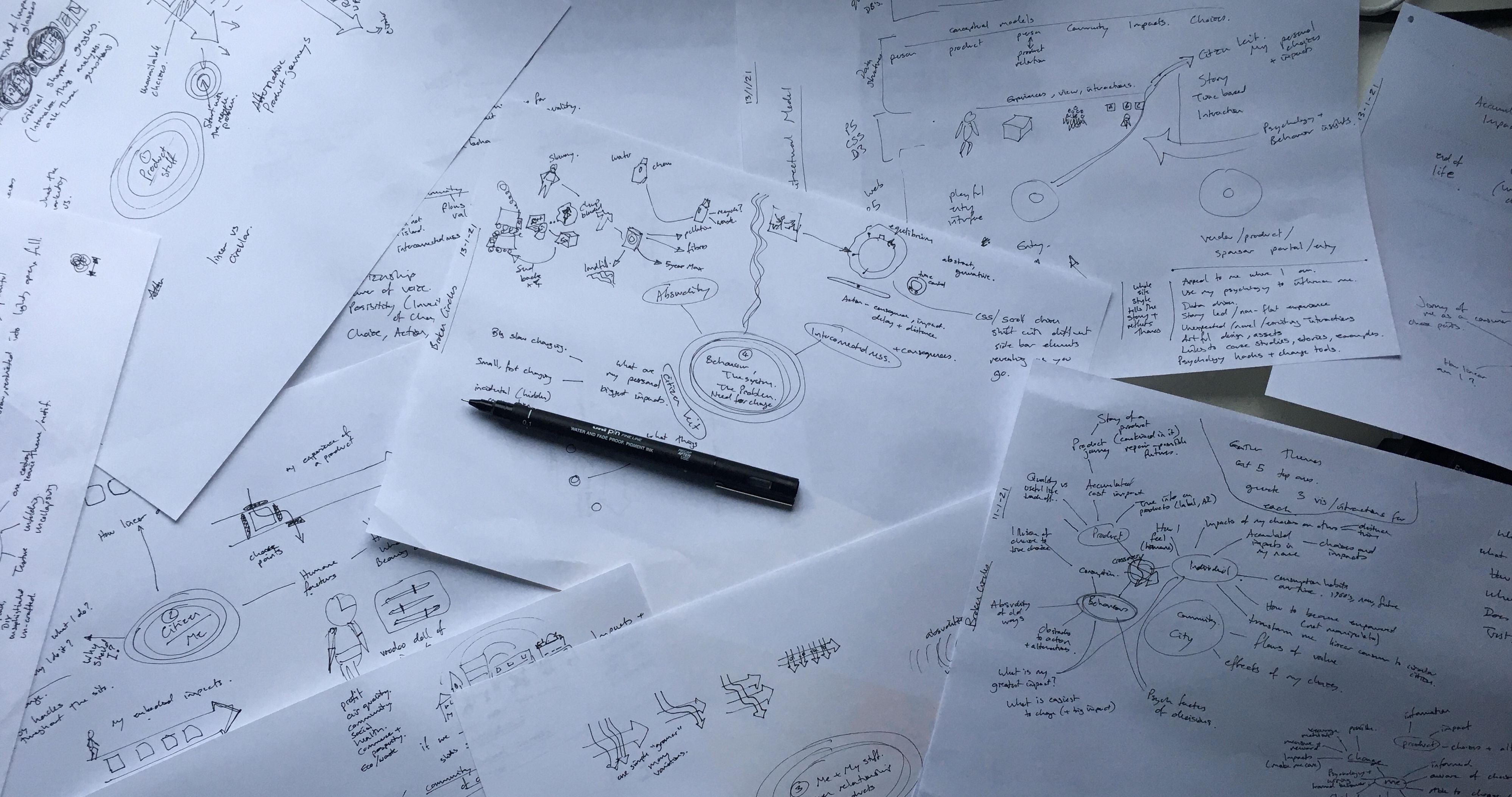Panning for Gold
One important skill for any creative practice is to avoid any sense of perfection, judgement or pride in early ideas. This allows you to generate many ideas quickly, without judgement and without being overly invested in any of them. It removes the pressure to create something amazing from thin air, and applies a process to make the magic happen. When faced with the terror of an empty page or screen, this is the way to get going.

In a way, the first few weeks of our broken Circles project have had the opposite problem - many, many candidate ideas, and a limited time to pick the best candidates for realistic development into a prototype within the time and budget allowed. So now is the time to apply the judgement. I am sifting through some ideas (some my own, some from Jon or inspiration from elsewhere, some the mutant progeny of several sources) to identify a few strong candidates to explore and then pitch to Jon for inclusion in an early prototype. Some ideas seem to persist (is this because I am simply fond of the them, or have I somehow invested pride in them, or is it because they are worthy? It’s hard to tell). Some ideas are a synthesis of a few vague origins. As I narrow the field, I am trying to be objective in assessing them.
- does it help achieve the project’s aims (for us, for the intended audience, for possible interested future customers)
- does it really tap into the awareness and change we want our audience to experience
- dooes it have creative merit - we want to provoke engagement and curiosity, and avoid well trodden tropes
- does it deliver a punch - inspire an ‘aha’ moment in the audience?
- am I excited by it?
Less important to assess at this stage, we should also consider:
- how will we build it?
- how will data support it?
Tomorrow I present my selection of ideas to jon and he will do the same to me. We aim to pick a few winning candidates for early prototyping in the next two week sprint.